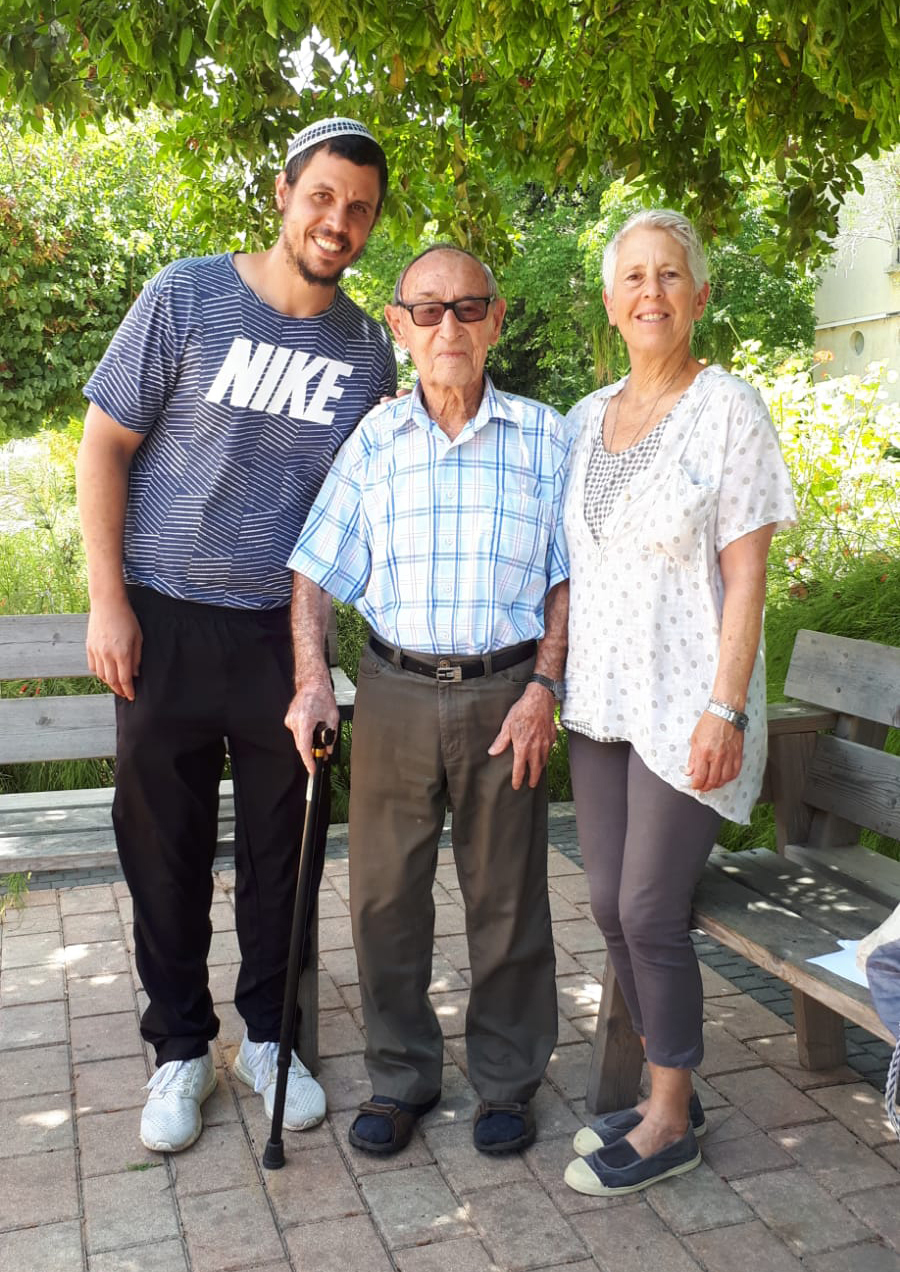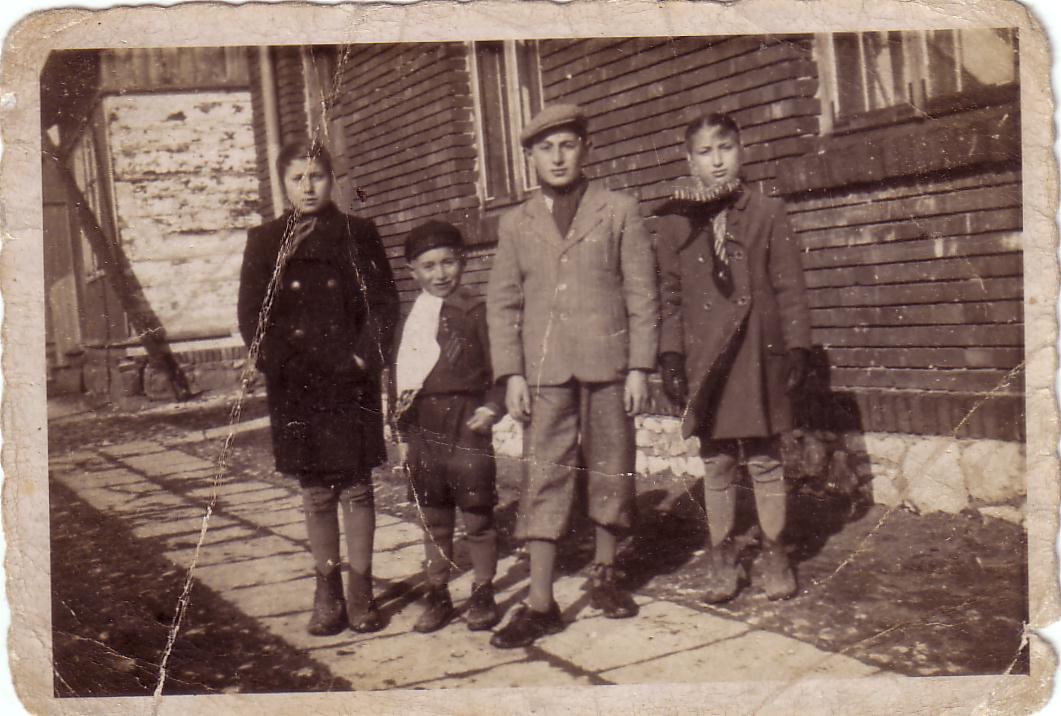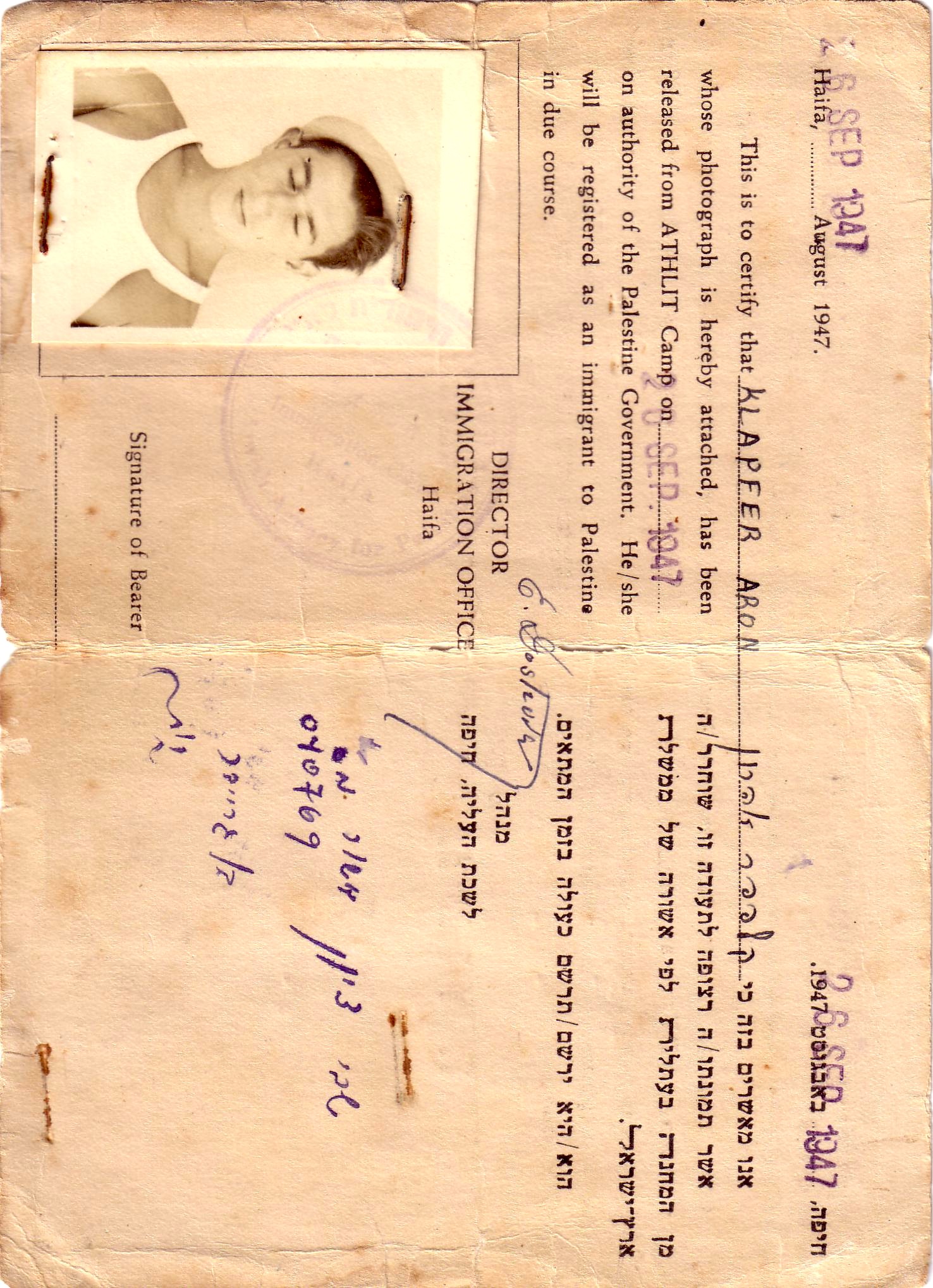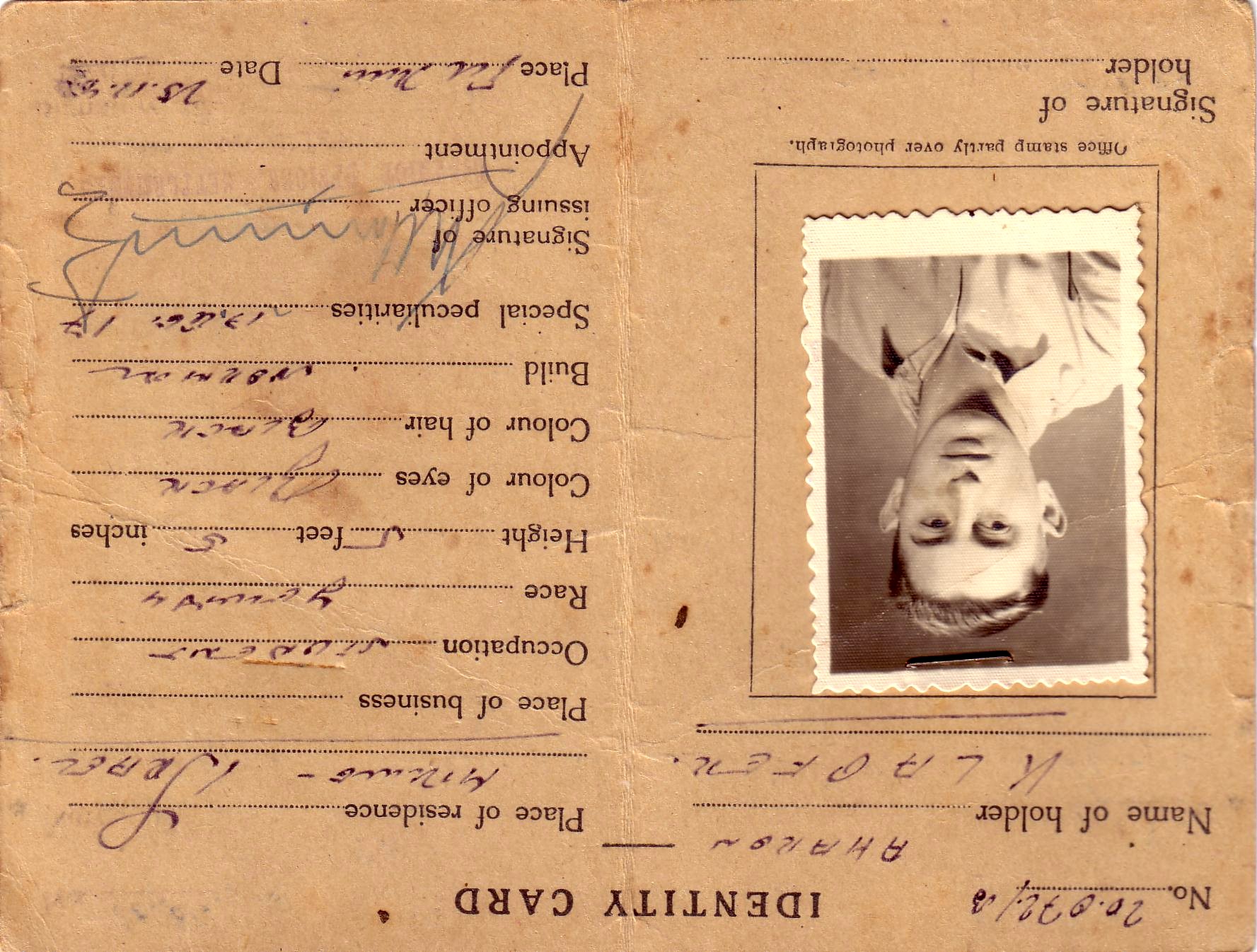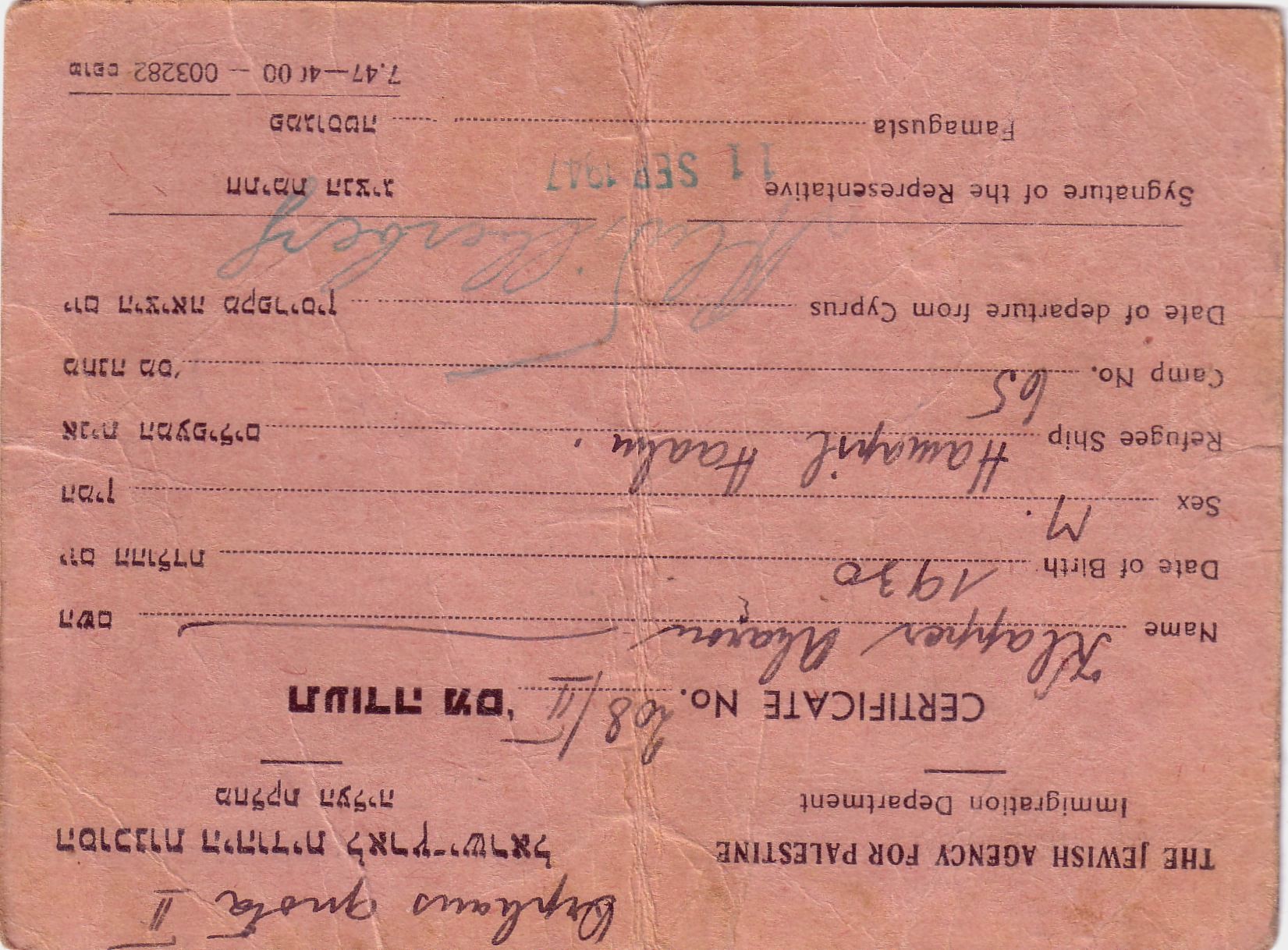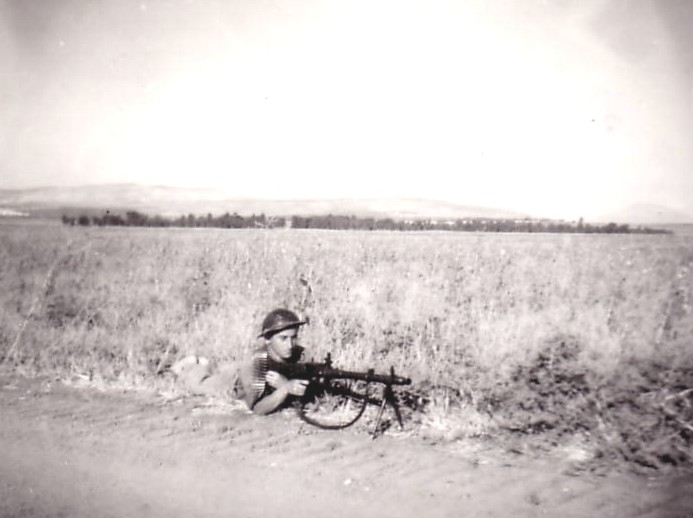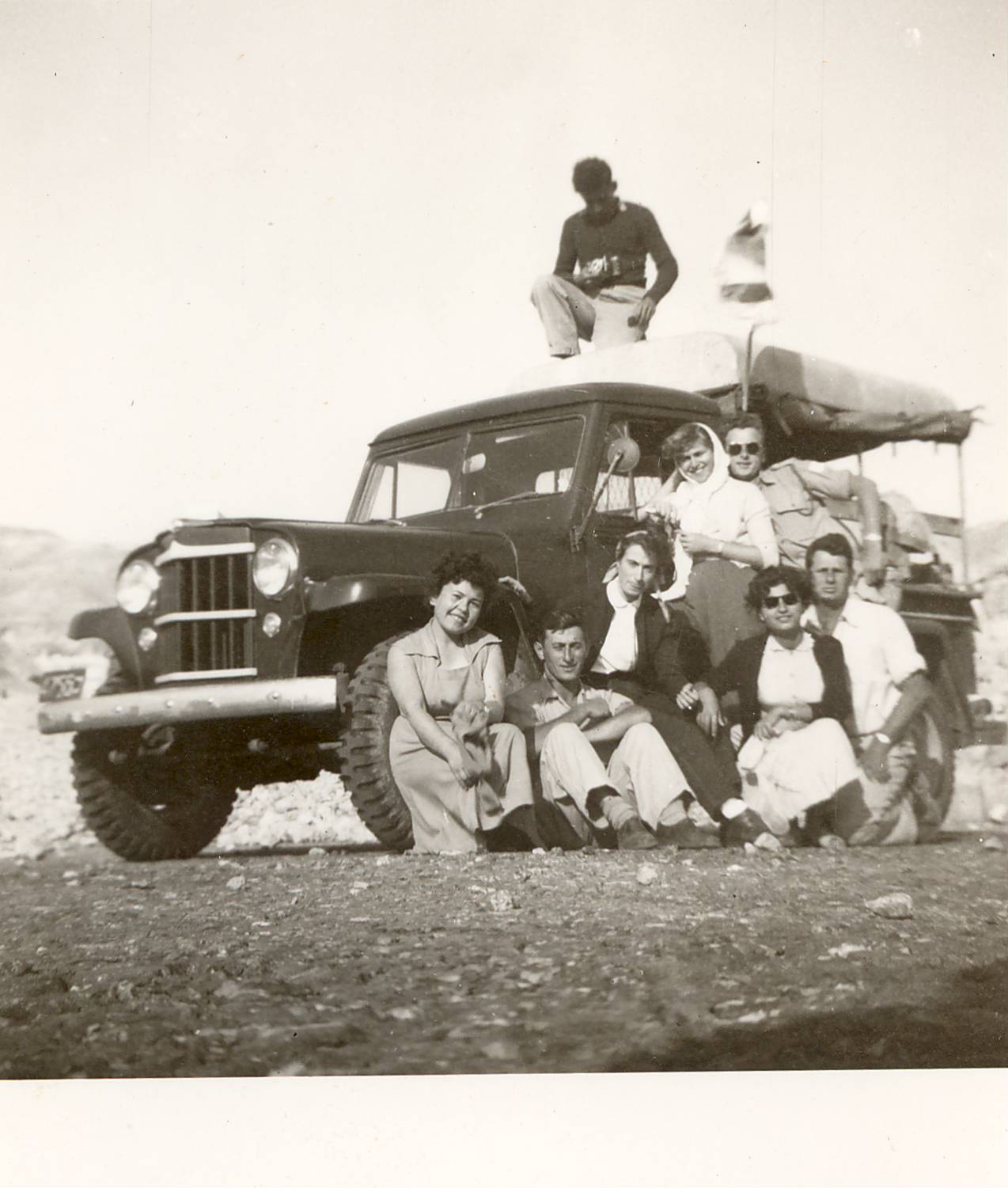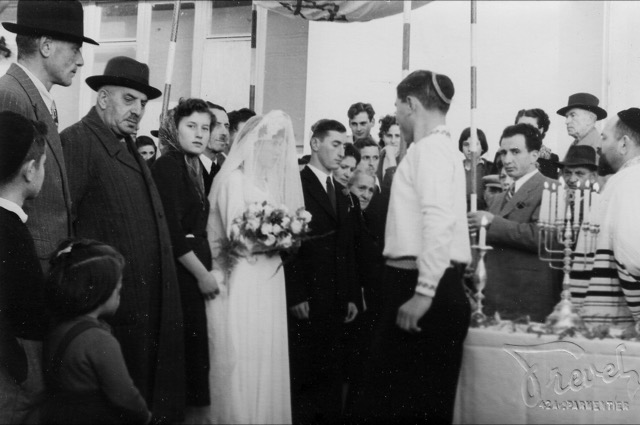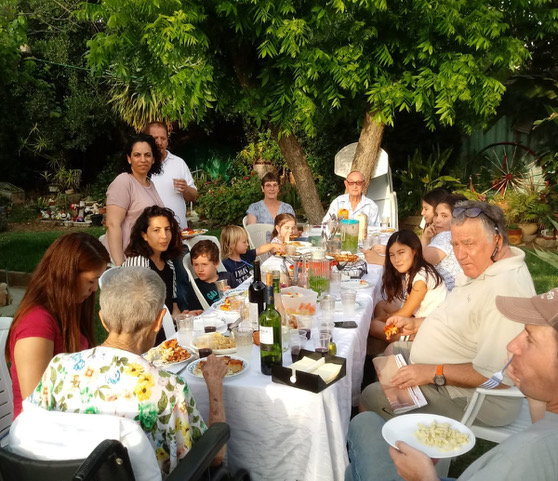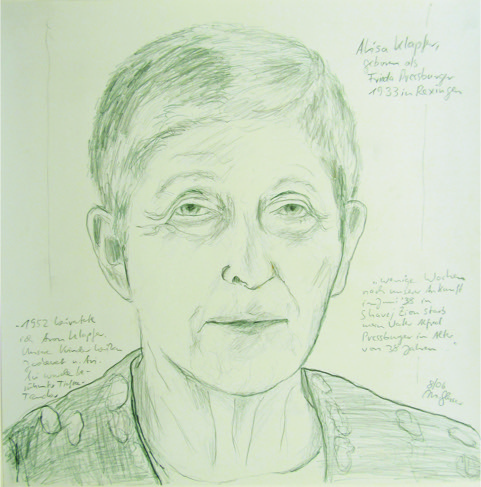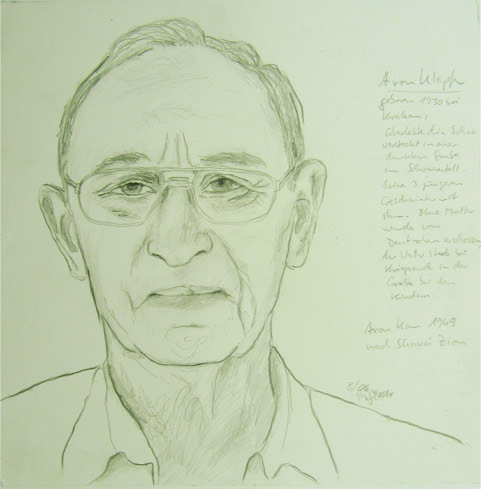Aharon was born in Czarnowice, Poland, north of Krakow, in 1930 the eldest of Alter Reuven and Yocheved Klapfer's five children. His siblings were Jonah, Tova, Leah and little Jacob, who died at the age of six when he fell from a great height.
Aharon says: "Until the age of 11, I lived a completely normal life in the town. Czarnowice was a small and beautiful town. A small river [named Pilica] passed through the town and we children would spend a lot of time there, jumping into the water and swimming. On the whole, the town was very warm. Everyone knew each other and spent time in one another's company.
I came from a religious family and as a child, I studied at the "cheder". I remember we had a very rigid teacher. If we studied properly, everything was fine, but if we didn't behave as he wished, he would strike our hands with a ruler and when we really got out of hand, he would even call us derogatory names such as "shaygetz", meaning "gentile".
One of my most vivid childhood memories is of the period of "selichot" (Jewish prayers before the New Year). We had to get up very early. It was really dark outside but everyone was at the synagogue. It was a very special feeling.
My parents loved to have guests, especially poor people. Every Sabbath, we had new faces around the table. The Sabbath was also the day when all of us town kids would go out and play together. I must note that not all of my friends were Jews; I also had non-Jewish friends.
When I was 13, everything changed for me. The Germans entered our town. That day, they gathered all the Jews in the center of town to send them by transport to the extermination camps. Our family did not wait to be sent. Believing the rumor that the Nazis murdered Jews, my father decided that we would not gather like everyone else but would run away.
I remember that at first we would hide inside haystacks. We would dig from above and hide inside during the day. Only when evening came would we quietly go out to get food from the peasants and our gentile friends in the town. Luckily for us, my father had had a leather goods and shoe store before the war. My father was a really good person. He would help a lot of the townspeople at this store, so many gentiles from the town had had very good relations with my father and when the war broke out my father knew from whom he could ask for help. I must note that my father always paid for the help. Nothing was free.
As the war continued, our ability to hide and get along was hindered. We went from hiding in haystacks to hiding in the homes of gentiles. Then, my father scattered us among stables until the situation completely worsened and we had to hide in the forest in the middle of winter. We were very isolated. All our gentile neighbors steered clear of us out of fear for their lives, and there were even those who sought to harm us and to take revenge. One gentile was really mean to us. He had been a chimney sweep before the war and he was often found in our town. In the winter before the war, some of us friends were playing in the snow. We liked to hang out and ride sleds. It seems we accidentally ran into him. He grabbed me and beat me. I ran crying to my dad and my dad grabbed him and beat him in return. Apparently, a deep hatred formed in his heart then.
Months later, when the war broke out and the Nazis started transporting Jews from the town to the death camps, we decided to flee and hide in the forest: my mother, my father and my three siblings. (That gentile) discovered our hiding place and found us, probably because of the tracks we'd left in the snow. He spoke to my father kindly and said he understood the terrible situation we were in and he wanted us to come hide not in the woods but at his place and he would take care of all our needs. My parents were a little suspicious but on the other hand, they wanted to take care of us. My father and mother went with him and asked us to remain in hiding. Of course, in actuality he had lied to them. When they got to his house, the police were waiting for them. They caught my mother; my father managed to bribe the gentile at the last minute, assuring him that he had some hidden gold and that if he did not betray him, he would tell him about this hiding place and the gold would belong to the gentile.
My father did manage to save himself but unfortunately he wasn't able to save my mother in this way and she was murdered by the Nazis. With great difficulty, my father was able to return to the forest. As soon as I saw that he had returned without my mother, I immediately understood what that meant. I didn't cry. I didn't feel anything. It's really hard for me to explain how I felt nothing. Those were different times. We just acted like robots In order to survive. There was no other way.
We continued to hide in the forest. My father did everything he could to help us survive. Unfortunately, he did not survive. He died of starvation and exhaustion. The last word he said before he died still resonates in my ears: 'Revenge!' We hid for over two years.
I remember the day the war ended. There was nothing special, just one of the gentiles who had helped us in hiding came and told us we could stop hiding. I don't remember if I was excited. Again, I have to point out that the things we went through caused us to act like robots. We felt like we were living in another world, but even though the war was over, the hatred had not disappeared. The Poles did not like us, to say the least. When we tried to return to our town, the first thing we wanted to do was to return to our houses that were taken from us during the war, but the Poles who had moved in under German protection during the fighting did not want to return them to us. One of our neighbors who tried to demand the return of his house was shot and killed by the Polish gentile who had moved in.
My siblings and I realized that there was nothing left for us in Poland and that Eretz Israel would be our refuge. Our journey to Eretz Israel began in Krakow. We were there for about six months. After that, the Jewish Agency's emissaries sent us on foot to Czechoslovakia, and from there we continued to Germany. We crossed the border into France and at the port of Marseille we boarded the illegal immigrant ship "Anonymous Immigrant".
As we approached the shores of Eretz Israel, British soldiers seized the ship and sent us to Cyprus. The feeling there was almost the same as during the war. Again, we lacked everything, there were guards on all sides, there was a shortage of water and food, and we lived in tents. The situation was so dire that because we had no clothes we cut fabric from the tents and use that as clothing. We received a permit to immigrate to (Palestine) only six months later and we went to Eretz Israel.
I started studying at Mikve Israel Agricultural College. As part of the school program, we traveled about and got to know the settlements (moshavim) in Israel. When I arrived in Shavei Zion, I fell in love with the moshav (and also with Aliza, my future wife). I enlisted in the Haganah.
I took a commanders course and participated in many raids ("ambushes") against the British Mandate before the establishment of the state, the most famous of which was the ambush in Givat Olga.
I had the privilege of establishing a family and, with my late wife Aliza, I have two children, Avi and Yocheved, and seven grandchildren. There is no doubt that the family I raised gives me the strength to continue. I always made sure that all family events took place at our house. My house was always open just as I learned from my parents. This is my triumph!
However, to my sorrow, I feel that today's generation is not engaged, not interested in the history of our people and I wish we could fix that. Not long ago, I wrote a book about my life and gave it to my family but I'm not sure everyone has read it. Unfortunately, our (younger) generation lives only for the present and doesn't remember the past. We must expose the younger generation to the past as much as possible. Only in that way can we prevent (the past) from repeating itself."
